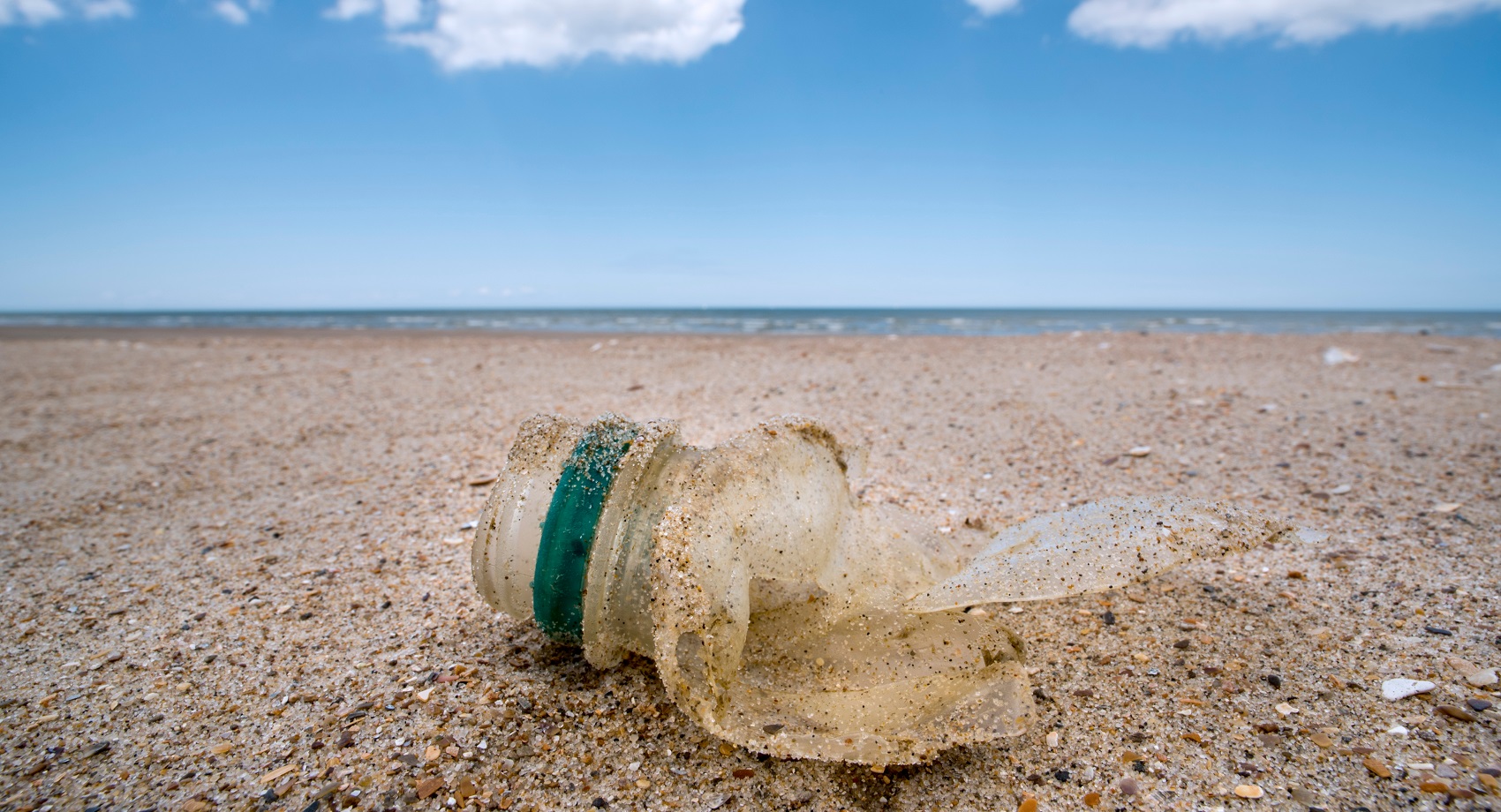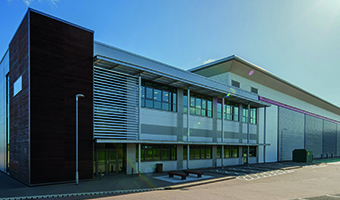The theme of this year’s Earth Day on 22 April 2024 is ‘Planet vs Plastics’. This is a huge theme, but our fight against plastic isn’t new. Society has been aware of the catastrophic build up of plastic across the globe for years.
Earth Day organisers’ decision to use this theme highlights how enormous the challenges of curbing plastic use are, and how it hasn’t yet started to recede. While people are starting to act, businesses and consumers are yet to reduce use of plastic by any meaningful level and there are still not enough widely-available alternatives.
UK households are estimated to throw away 100 billion pieces of plastic packaging each year. The government’s stated goal is for all plastic packaging to be recyclable, reusable or compostable by 2025, but the UK doesn’t yet have the facilities for this to happen.
The built environment has its part to play in reducing plastic use, as it does in reducing all types of waste. Almost half of all plastic is created for single-use products such as bottles, cups and packaging - items commonly found in all types of real estate from shops to offices. Today, developers, service providers, landlords and occupiers are innovating to find better ways to reduce waste through their operations.
But for the industry to really make a difference, success depends on one thing: having enough data on what is currently happening. You can’t manage what you don’t measure.
The need for data
Today, most businesses have environmental targets and policies in place such as ISO 14001. However, these policies and standards focus on carbon reduction, which is short sighted. If humanity does get a grip on carbon emissions and meet net zero within the century, plastics will still be with us for the next 20,000 years unless we are able to effectively curb its use and extract plastic contamination from the environment.
To create a waste policy with a plastics target, a business needs to understand its baseline position. It needs data to ascertain the weight of plastic produced via different waste streams. Many businesses don’t have access to this granularity of data - they might have information on total waste, but not specifically single-use plastics.
Another question for stakeholders is, where is waste going? Is it going to a waste-to-energy facility or to landfill? Is mixed recycling actually reused to meet the demands of recyclable materials?
Businesses also need data that backs up product claims. A plastic bottle might claim to be made from 80% or 100% recycled plastic, but how can those claims be substantiated? Where has the bottle been processed? There’s a lack of transparency throughout the supply chain at the moment, but this will improve.
Once a business has data on plastic use, it can start to act. Some occupiers are already seeking to reduce use of single-use plastic, particularly retailers where they have concrete data on how much plastic their businesses use in the sale of products. Sainsbury’s has pledged to half plastic packaging by 2025. Starbucks is testing models to encourage consumers to use reusable cups with the aim of getting rid of single-use cups entirely.
Effective procurement to tackle waste
Recently, LSH carried out a major procurement exercise for our clients’ managed portfolios. We sent out a waste management tender for all our managed sites. The criteria included information on recycling rates, how data is captured, how measures are monitored and how corrective actions are put in place.
Procurement is a vital component of implementing effective waste management. It’s important for a business to select the right waste management partner, not only to provide the data they need to make decisions but to provide the services that are suitable for their operations. Each tenant operates differently.
Our focus during this exercise was on not only to standardise our appointment of waste contractors to ensure they could deliver what our clients need, but to ensure they could continue to do this into the future. We asked how they were innovating to come up with new strategies as governmental and industry policies evolve.
Improving waste management
Following the procurement exercise, we awarded the national waste contract to Bagnall & Morris Wastes Services. They demonstrated impressive data collection and analytic tools from sensors, specialist equipment and monitoring waste streams. They also are investing in new recycling plants with innovative technologies such as eddy current separators, inline magnets and AI-driven automated separation processes to improve recycling rates while securing sustainable and fully traceable outlets. Understanding tenants and building operations waste stream data can open avenues of engagement and policy alignment.
We have also been carrying out waste audits with clients. One particular client owned a large mixed-use scheme and had a problem with overflowing bins. Our team sent questionnaires to all commercial tenants to understand the waste contracts in place. We quickly saw that not only were the bins poorly maintained, with waste being contaminated, but there was a lack of information about what should go in which bin.
Our solution was to suggest the appointment of a centralised waste management provider. Not only would this reduce waste collection vehicles accessing the site, but provide scope for sharing bins and data. We created a unified waste policy for all tenants and are now looking to engage them in a drive to educate people about waste and how to reduce plastic use.
Building on the data
As well as the need for better data, there is a need for education. Building managers are responsible for ensuring waste strategies are followed, but it is still down to occupiers to follow guidelines. They need to understand what types of waste to put in which bin, the need to mitigate cross contamination and ways to reduce plastic use overall.
The data needs to be provided to the right people in an organisation to help them make everyone more aware of the impact of their actions. Businesses are starting to adopt a policy of zero waste to landfill, but we need everyone to work together to get there.
Consumers need to join businesses’ goals for plastic use to be reduced radically. Starbucks will only reach zero single-use cups if it finds a business model that consumers will buy into, whether that’s bringing their own cup or returning reusable cups to Starbucks to be washed.
In the future, AI will have a huge part to play in improving recycling rates and also safety. Machines will be able to recognise and separate different grades of plastics and contamination levels to remove people from manual sorting and potentially dangerous environments where combustible materials are common. Data collected from technology will help to refine strategies and show what is working. Until those solutions are ready, working with a partner such as LSH can help to manage waste as efficiently as possible.
Get in touch

Email me direct
To:
REGISTER FOR UPDATES
Get the latest insight, event invites and commercial properties by email







